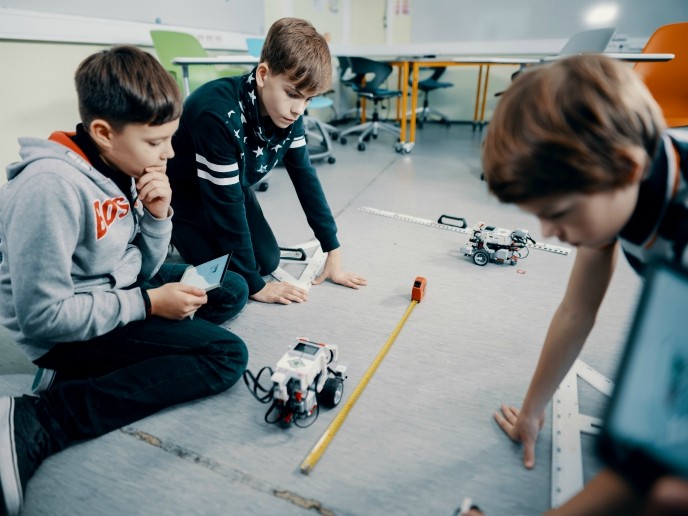Estonia at the forefront of educational innovation in Europe
The Estonian Lifelong Learning Strategy 2020, in alignment with the strategic framework for European cooperation in education and training, calls for a change in current approaches to learning and teaching. It envisions a digital turn in both formal and informal education leading to a shift in the learning paradigm towards more self-directed, creative and collaborative learning. Such a shift requires creativity, entrepreneurial approaches and evidence-based policies at all levels of education. It further necessitates teaching methods and a learning environment that considers each learner’s individual and social development and capabilities. The road ahead Achieving these results is no easy task however. Often, curricular reforms are decided upon without incorporating teachers into the change process and new technology is usually brought into schools without adequate evaluation as to how teaching and learning would benefit. Furthermore, a wider take-up of proposed innovative methods by teachers or projects do not always occur. The CEITER project set out to facilitate structural changes in Estonia. “We sought to improve the take-up of evidence-based teaching and learning innovations in schools, including use of digital technologies in teaching and learning,” outlines Prof. Tobias Ley, head of the project. Additionally, the project aimed to integrate research and practice in education, allowing for it to be more directly applicable in schools and for schools and teachers to adopt evidence-based practices. Alongside this, the project looked at building a Centre of Excellence in Educational Innovation at Tallinn University to connect research on digital technologies in learning, teacher education, psychology of learning and different subject didactics. Achieving educational innovation As well as creating a Centre of Excellence, CEITER built a new method to conduct research in education called EDULABs. “The EDULABs method is a way to co-create, introduce and scale educational innovations in the Estonian school system,” explains Ley. It is a systematic research, training and development method that is integrated into teacher education to spread evidence-based innovation in schools. The project has tested and demonstrated the feasibility of the method by applying it into several EDULAB cases which commenced in 2017 and are currently ongoing. These cases include the robomath EDULAB which integrates robotics into Maths education. The outdoor learning EDULAB uses technology in natural sciences education. The digimath EDULAB utilises digital learning materials in secondary education to support teaching methods and the smart schoolhouse EDULAB helps to raise student’s interest towards technology and solving real life problems. “These cases are mainly implemented through long-term continuous teacher development programmes and through school development projects,” notes Ley. The project’s impact “The project led to higher levels of adoption of digital technologies in Estonian schools and to an increased number of student-centred learning scenarios and methods,” reports Ley. Another result is higher levels of competence with teachers, who felt a sense of ownership of the new methods in the classroom. The creation of a toolset for data collection that is used in education practice was also achieved, making available easy to administer data collection, analysis and presentation tools for teachers and researchers. Additionally, the project “was able to popularise the approach widely in Estonia through teacher education programmes and in the professional press,” explains Ley. Estonia has shown it is an excellent test bed for technology-learning solutions on a national scale and its results are expected to have a significant impact on educational policy nationally and in Europe.
Keywords
CEITER, digital technologies, EDULABs, educational innovation, teacher education



